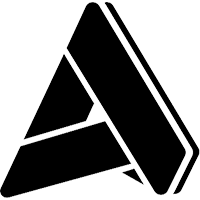Destacado en este post
Distribution Software: It's Time To Invest in Digital Transformation
Distribution Software: It's Time To Invest in Digital Transformation
28 Jul 2022
 Aptean Staff Writer
Aptean Staff Writer 
For Mark Benioff, the CEO of tech giant Salesforce, digital transformation is about more than just technology. It is ultimately about making your business better to serve the customer. Benioff says, “Every digital transformation is going to begin and end with the customer, and I can see that in the minds of every CEO I talk to.”
Digital transformation is defined as the process of exploiting digital technologies and supporting capabilities to create a robust new digital business model, according to Gartner. The pandemic forced businesses everywhere to accelerate their digital progress, but just buying some new software and expecting it to transform your business isn’t enough.
Digital transformation must be an all-encompassing strategy and a company-wide mindset. Digital transformation enables you to better serve your customers—with the help of integrated digital technology.
If you’re a distributor reading this blog, you may already have a few pieces of the digital puzzle in place. Perhaps you have a CRM you love, or maybe even automated marketing tools. But, in today’s lightning-fast consumer goods vertical, you need to reach the customer everywhere they are, and that could mean primarily on their mobile phone more than from their office.
On top of this, consumer goods importers have unique challenges that other industries don’t face. The supply chain issues plaguing the industry are severely impacting your profit margins. You must worry about everything from customs documents to sustainable operations, all while meeting stringent retail compliance standards. And two years of the pandemic have only accelerated the rate of change in the distribution industry.
If you want to compete, digital transformation of your enterprise isn’t a someday dream—it’s an immediate need. To put it simply, digital transformation is a matter of survival in the consumer goods market.
Your digital transformation journey is simple: it starts and ends with the right technology for distributors. Your business needs three things to succeed:
A single view of the truth
Access to actionable insights
Ability to make data-driven decisions based on current trends and customer needs
Here’s some good news—every tool you need to succeed in this fast-paced industry is available to you—you just need to grab them.
You might be asking, so what are these tools? In this article, we outline the distribution software solutions that consumer packaged goods (CPG) companies will need for a successful digital transformation journey.
1. Cloud Distribution ERP
When you are starting your digital transformation journey, you need to begin with an industry-specific distribution ERP. Think about an ERP, or enterprise resource planning system, as the unifying force behind your entire organization. All business owners must wear a lot of hats; but as a consumer goods distributor, there are added layers of complexity within your business due to the global nature of the supply chain. For instance, on a typical day, you might be asked to oversee inventory management and forecasting for next season’s orders. You might be fielding calls from retail customers or even talking with customs officials. You must supervise supplier and customer management, accounting, procurement and any number of other tasks. If you want to grow, you cannot continue to use manual processes or a legacy ERP to manage all of these things separately.
With older ERP systems and different programs in use by each team, it’s a challenge to keep everyone on the same page. Your staff are working with disparate data sources—they don’t have up-to-date information on relevant aspects of the business, or they simply may not have access to it. An industry-specific distribution ERP system solves this problem by compiling information in a central database with everyone having full visibility into real-time data and one source of the truth. A distribution ERP unifies all critical business functions, so your team can better analyze future scenarios, discover process improvements and become more efficient.
In addition, Aptean Distribution ERP has a unique, built-in profitability scorecard tool that is designed to determine how profitable your business is. The tool evaluates the profitability of each customer, product and supplier. You can scrutinize chargebacks and deductions, freight, commissions and any other costs to ascertain your exact profit margins. Then, you can make strategic decisions based on those analytics. Even better, Aptean has cloud-based ERP offerings which allow you to access insights into your business from anywhere.
2. Transportation Management System (TMS)
Having a warehouse full of great products is useless if you can’t get them out to your retail clients on time, in full. That’s where a TMS comes in. A TMS, or transportation management system, offers complete visibility and control across your transportation operations—including planning, route optimization, legislative compliance, customer service and more. This is a key piece of the puzzle for distributors because it means you are not only reducing the money you must spend on transporting your goods, but also reliably adhering to the delivery promises you make to your customers.
When integrated with your ERP and warehouse management system (WMS), you can easily coordinate shipments to your retail partners. Your TMS and your WMS manage the tasks from truck to warehouse and back again, such as:
Picking and packing the orders
Getting them on pallets to be shipped out
Building loads and cross docking
Essentially, adding a TMS to the mix means that you have an electronic interface between the warehouse, your last-mile shipper and your retail clients. Aptean has a full suite of transportation management tools designed to give you full visibility into order status. For consumer goods distributors, this is imperative because you must meet the on time, in full retail requirement to avoid hefty fines. You’ll be able to create an efficient, optimized delivery schedule to help you meet your retail customer’s compliance requirements and still save both time and money.
3. Warehouse Management System (WMS)
With warehouse management capabilities built into your ERP, you can support even the most complicated, multichannel fulfillment processes. A WMS optimizes inventory management, as well as picking and packing operations, ensuring that you can run an efficient operation and make the best use of limited warehouse space and staff. Aptean Distribution ERP has an integrated WMS that manages inventory seamlessly and automatically feeds that information into the ERP.
As a distributor, your warehouse team must coordinate multiple orders coming in and going out. A robust WMS can organize the location of product assignments and decide the best place to stage each load automatically. This enhances picking and packing routes to improve ease of physical movement throughout the space. Your team won’t waste time trying to locate products because Aptean Distribution ERP with integrated WMS has RFID scanning capabilities. You’ll have full, real-time visibility into current inventory levels.
After that, once the load leaves the warehouse, built-in traceability tools track every load upon its arrival in-house to the retail sales floor.
4. Electronic Data Interchange (EDI)
EDI, or electronic data interchange, is the unsung hero of distribution data management. EDI synchronizes the transfer of data between business partners without the need for manual data entry—removing these outdated processes prone to errors. Instead, EDI creates and transmits all documents and information electronically, including items like 850 purchase orders, 810 invoices, 856 shipping invoices and manifests and even customs documents.
The benefits of EDI are countless, but many retailers require their business partners to have EDI before they will conduct business with them, making it an imperative part of your digital transformation. Moreover, most retailers have specific compliance requirements, and these vary widely from retailer to retailer and even from store to store. If you don’t meet these requirements, your business could accrue fines, late fees, deductions or chargebacks. A distribution ERP with built-in EDI helps manage all these guidelines and specifications to ensure you are always in compliance. You’ll reduce chargebacks and deductions while enhancing your retail relationships.
5. Business Intelligence (BI)
If you’ve read this far, you know that your distribution ERP is the key to starting a successful digital transformation. Aptean Business Intelligence is the final tool you need to power your future business strategy. An ERP with the software modules above will help your operations and processes run at peak efficiency.
However, Business Intelligence goes further. Business Intelligence gives your company strategic insights into performance metrics and helps you uncover trends—these trends show you the roadmap to grow the business because you get actionable insights.
With business intelligence you see how your current processes will affect certain key performance indicators (KPIs). Then, you can make changes to get better results. This allows you to experiment with different scenarios and figure out the best way to please your customers and still turn a tidy profit.
Perhaps you are having trouble managing chargebacks and deductions. You know this by getting reports through your ERP; however, with business intelligence integration, the accounting team can identify which retail customers keep accruing these charges. Then, they can recommend changes to correct the issue. Your customer is happier because their orders are more accurate, and you can put the money you were spending on retail compliance fees toward growing your business.
Create a Customer-Centric Enterprise Through Digital Transformation
All these different distribution software tools have one thing in common—they will help your business connect fragmented business processes and eliminate data silos. What does this mean for you? You have a single, unified view of your customer, which gives you unique opportunities to leverage the insights you’ve gained into improving every aspect of the customer experience. And all the while, you’re increasing internal efficiency and reducing costs.
It’s true that focusing on manufacturing excellence and lean principles can still help you grow. However, in the new normal consumer goods distributors cannot make a meaningful impact through these methods alone. A digital transformation strategy gives you actionable insights into trends and customer behavior. This allows you to see new possibilities and meet the expectations of your always-connected customers.
A successful digital transformation will make work better for your employees and delight your customers. You can bet that your competitors have a digital transformation strategy in place. After all, it’s the best way to streamline production, expand operations, empower your employees and enhance the customer experience.
It’s a lot, but you don’t have to do it alone. Aptean has a team of industry experts that can help you make a successful digital transformation. Buying all the pieces for your digital transformation from one vendor can ensure an integrated and seamless transition. Want to see how it works? Ask for a demo. You can also assess the health of your distribution business with our online health-check assessment.
Empieza a transformar tu negocio de distribución
Si estás listo para llevar tu negocio al siguiente nivel, nos encantaría ayudarte.



